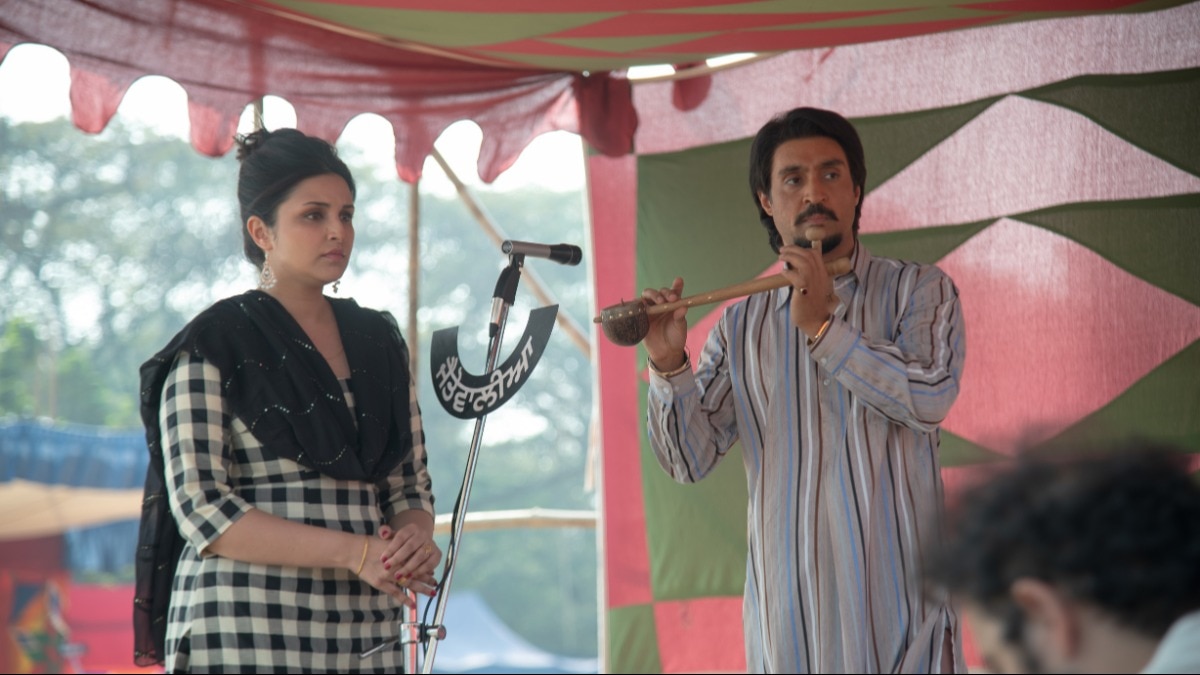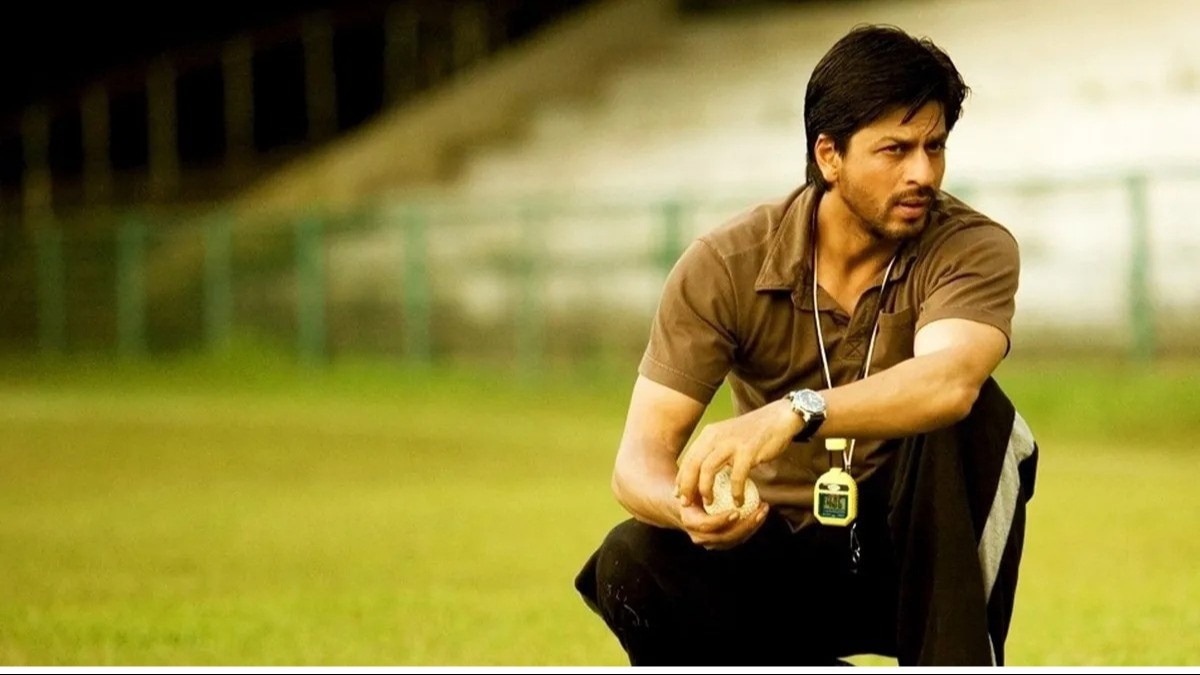
On his birthday, we celebrate SRK with stories about women who have one thing in common—their love for King Khan
The economist and author Shrayana Bhattacharya opens up about her 15-year journey of researching and writing her best-selling book 'Desperately Seeking Shah Rukh'.


In his Bollywood career spanning 30 years, a lot has been written about Shah Rukh Khan—but not much has been said via him. Shrayana Bhattacharya's insightful non-fiction book explores the economic and intimate trajectories of Indian women from various classes and castes of India, with one common theme binding them together—their love for their favourite actor. With SRK as a symbol for a more vulnerable masculinity and economic independence, the book gives credibility to voices that have been left unheard or unacknowledged for a long time.
In Desperately Seeking Shah Rukh, Shrayana highlights the small acts of rebellion that allowed Indian women, especially from lower castes and classes, to claim agency. Be it saving up money to go see a SRK film, or secretly collecting his newspaper clippings, these actions deviated from the mould of the obedient, house-bound Indian woman. The author’s own act of rebellion was writing this book. Instead of writing a "serious", academic book, she chose to tell the stories of Indian women in a way that was engaging and relatable.
Bazaar India sat down with Shrayana to find out more about what went into writing and researching the book, the kind of impact she hopes it will have, how she felt when she finally met her idol to discuss the book, and more.
Harper’s Bazaar: When did the idea of the book come to you and what inspired it?
Shrayana Bhattacharya: I’m not going to lie and claim that it was a well thought out idea in the beginning. A series of accidental meetings between 2006 and 2009 birthed the structure of the book. In 2006, I was sent to a slum in Ahmedabad for a project on home-based workers with a feminist think tank. I was supposed to ask the women traditional questions about wages, working conditions ,and so on. They would get really bored and I picked up on that. So during our breaks, I started asking them ice-breaker questions like "Who’s your favourite actor?" And I discovered that there was a giant fandom for Mr. Khan in this community. Whenever we talked about him, the conversations would come to life.
I realised that when these women were talking about Shah Rukh, they were really talking about how they struggled to earn money independently to watch his movies, to claim fun and not feel guilty about it, and how hard it was for them to have safe spaces. Over the years, I met SRK fans all over the country and diligently took notes of our conversations. When I studied the notes I’d made in 2010 and 2014, I realized that these women were using Shah Rukh as a proxy for their economic independence and also to complain about men and masculinity. Somehow, he had become a beautiful and unusual research ally. I wanted to tell the stories of these women in a respectful way without victimising or glamourising them.
HB: In your book, you talk about topics such as feminism, policy, and economy in a relatable way by leveraging SRK and Bollywood on the whole. What was it like trying to strike that balance without watering down either topic?
SB: Frustrating (laughs)! My grandmother was a Bengali woman who was very frustrated with Bengali male economists writing and talking about things in a way that she could never enter the conversation, even though these were all things that impacted women like her. So, I’d decided early on that I wanted to write about the economy in a language that was not an insider boys club. If I was going to write a book about the women in the economy, it better be easy to read for those women. Having said that, it was difficult. I rewrote the text nearly six times to make it less technical. I wanted the book to feel as alive as a Shah Rukh film. I’m also glad that I decided to introduce myself into the text, which made it a lot more personal.
HB: As a fan, how did you check your bias during the research and writing process?
SB: I think the best way to check your bias is to acknowledge it. I’m biased not only about Shah Rukh, but also about the women who hold paid jobs in India. As a single woman with a paid job, I’m very angry at the way markets and social structures treat me. So, I had biases of both kinds, and to check them, I did two things. One, I brought in enough voices that weren’t mine. Apart from that, I tried to wear my biases a bit lightly and be humorous about it. Additionally, my social science training helped me step away from the fandom to analyse it as and when needed.
HB: What were some of the challenges you faced while interviewing the women in your book?
SB: The first challenge was connectivity. Women’s connectivity is so difficult, so researching about them inherits that problem. The other challenge was getting permissibility from the women I interviewed outside my research projects. Everyone has their opinion on how they want to be represented, and you also have to respect their privacy. For example, in the chapter on the upper class elites, I had to create a composite because almost all the women I had spoken to had an issue. The trickiest thing was when I was writing about myself and the people in my life. I had to make sure everyone was comfortable with how I was representing them.
HB: Are you still in touch with these women?
SB: Yes! They are really pleased that Shah Rukh knows about the book and it has reached him. Our relationship is beyond research and they are still hoping that I will get married—that’s their primary concern. I’m also in touch with some of the women because I want to create a safe space for rest and recreation for them, which you’ll realise in the book is so hard to find.
HB: What was it like to finally meet Shah Rukh Khan, not just as a fan, but also as a best-selling author?
SB: I went in with nothing but gratitude and I’m glad I was able to express it without fainting or doing something silly (laughs). It was really lovely that he recognised that the book was not about him, but about the economy. I’m grateful that I could tell him about all the people who were the voices behind this book. They had been talking to me for so long only out of the generosity of their spirit, but to see the book finally reach our cumulative hero—that was a special moment. And how many people can say that they got to meet their research method?
HB: Tell me about you—are you still desperately seeking Shah Rukh?
SB: Shah Rukh is a metaphor for an alternative masculinity that appreciates women’s struggles, acknowledges their experiences, and he’s a symbol for economic opportunity. So many of these women don’t want to marry him—they want to be him. To me, he’s not a celebrity. He’s an idea. He represents what our country could be if we had a very different kind of masculinity, and I’m still looking for that.
feature and sq image: avigowariker/Instagram









